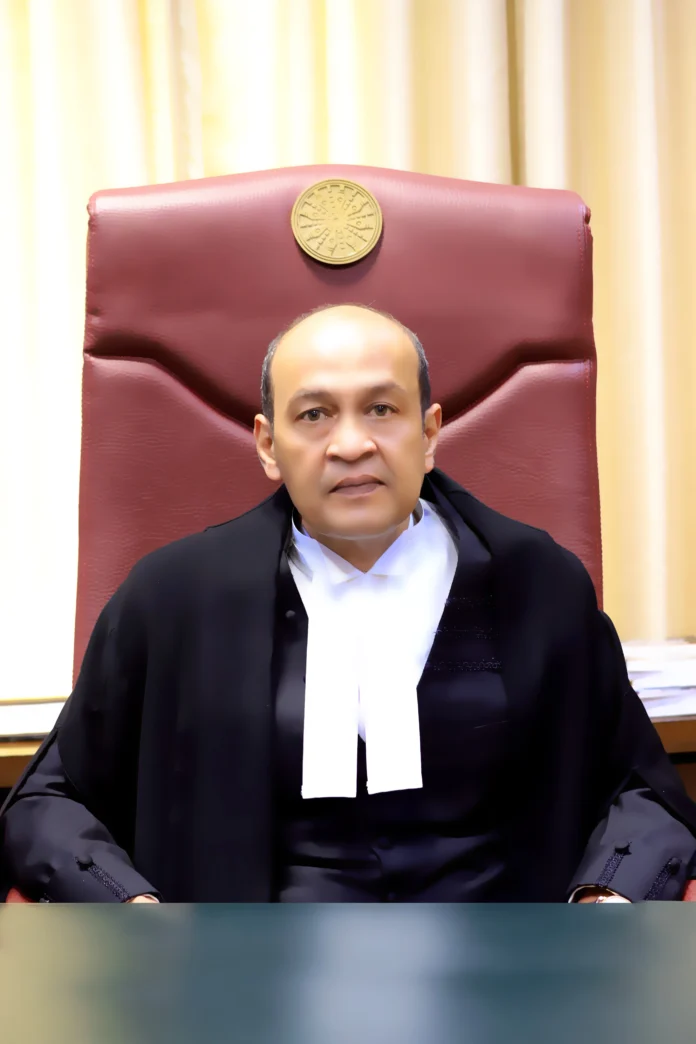The Supreme Court on Wednesday reserved its verdict on a petition filed by Allahabad High Court judge Justice Yashwant Varma challenging the in-house inquiry committee’s report that indicted him over the alleged recovery of a huge sum of unaccounted cash from his official residence in Delhi.
The Bench of Justice Dipankar Datta and Justice AG Masih observed that Justice Varma’s conduct did not inspire confidence since he decided to move the Court belatedly after an in-house committee constituted by the CJI arrived at adverse findings against him.
The Apex Court said it might refrain from interfering in the matter since the Parliament was considering impeachment against Justice Varma for his removal as judge.
The sitting High Court judge contended in his petition that the in-house committee did not conduct a thorough probe into the source of the money allegedly recovered from his residence.
The Bench said it was not the remit of the in-house committee to decide whether the money recovered from Justice Varma’s residence belonged to him or not.
Justice Varma further prayed that the recommendation made by former CJI Sanjiv Khanna for his removal as a High Court judge be declared as unconstitutional and ultra vires.
He claimed that the in-house probe against him was initiated without any formal complaint. The Supreme Court’s decision to publicly disclose the allegations through a press release subjected him to an unprecedented media trial, he added.
Noting that the points raised by the petitioner were major, the Bench said Justice Varma’s conduct did not inspire confidence. He did not want something to spill here.
Earlier on Monday, the Bench expressed its reservation over the procedural casualness and the timing of the petition filed by Justice Varma.
At the outset of the hearing, the Bench of Justice Dipankar Datta and Justice AG Masih on Monday pointed out multiple procedural lapses in the filing of the petition.
It said there were three respondents. The Union of India and the Registrar of the confidential cell were not required. Only the Secretary General of the court was required. The petition mentioned the Secretary General as Registrar General. It should not have been filed so casually.
Acknowledging the oversight, Sibal said corrections would be made.
The Apex Court asked Justice Varma why he participated in the proceedings if he believed the process to be unconstitutional and tainted.
Being a constitutional authority, who knew the process well, the sitting High Court judge could have immediately come to this Court and raised all these points, instead of waiting for the inquiry panel to conclude its findings and the then Chief Justice of India (CJI) Sanjiv Khanna forwarding a recommendation for his removal, observed the Bench.
It further asked Justice Varma whether he took a ‘chance’ for a ‘favourable’ outcome by engaging with the in-house panel and only turned to the Apex Court after the findings went against him.
If this report was of no worth, what was Justice Varma challenging, the Apex Court asked Senior Advocate Kapil Sibal, appearing for the sitting High Court judge.
Noting that the in-house probe was based on an established Supreme Court verdict and that the constitutional process for removal remained under Parliament’s domain, the Bench said of the petitioner had any qualms against the judgment, he could avail other remedies.
The Apex Court asked Justice Varma why he was aggrieved by former CJI Khanna’s intimation to the President and Prime Minister, especially when the in-house report itself did not trigger any legal consequence unless followed up with a formal parliamentary motion under the Judges (Inquiry) Act.
When Sibal termed the communication to the President and PM as unconstitutional, the top court of the country said that the President was the appointing authority for the judges of constitutional courts. Since the President acted on the aid and advice of the Prime Minister, it was sent to the PM. Sending a communication did not mean the CJI was persuading the Parliament to act against the judge.
On whether the judge’s conduct could be tested under general principles of judicial ethics, the Bench noted that the same could be treated as misbehaviour under the Bangalore Principles.
Adopted in 2002, Bangalore Principles of Judicial Conduct is a global framework for judicial ethics, which act as a guiding framework to ensure judicial neutrality and ethical conduct. Indian courts have occasionally invoked these principles in disciplinary contexts, particularly when evaluating allegations of judicial misconduct, as seen in cases of public speeches or actions that may compromise the perception of judicial impartiality.
Sibal argued that this did not warrant removal.
The Apex Court said one did not know and directed him to file the in-house inquiry report, as well as correct the memo of parties.


